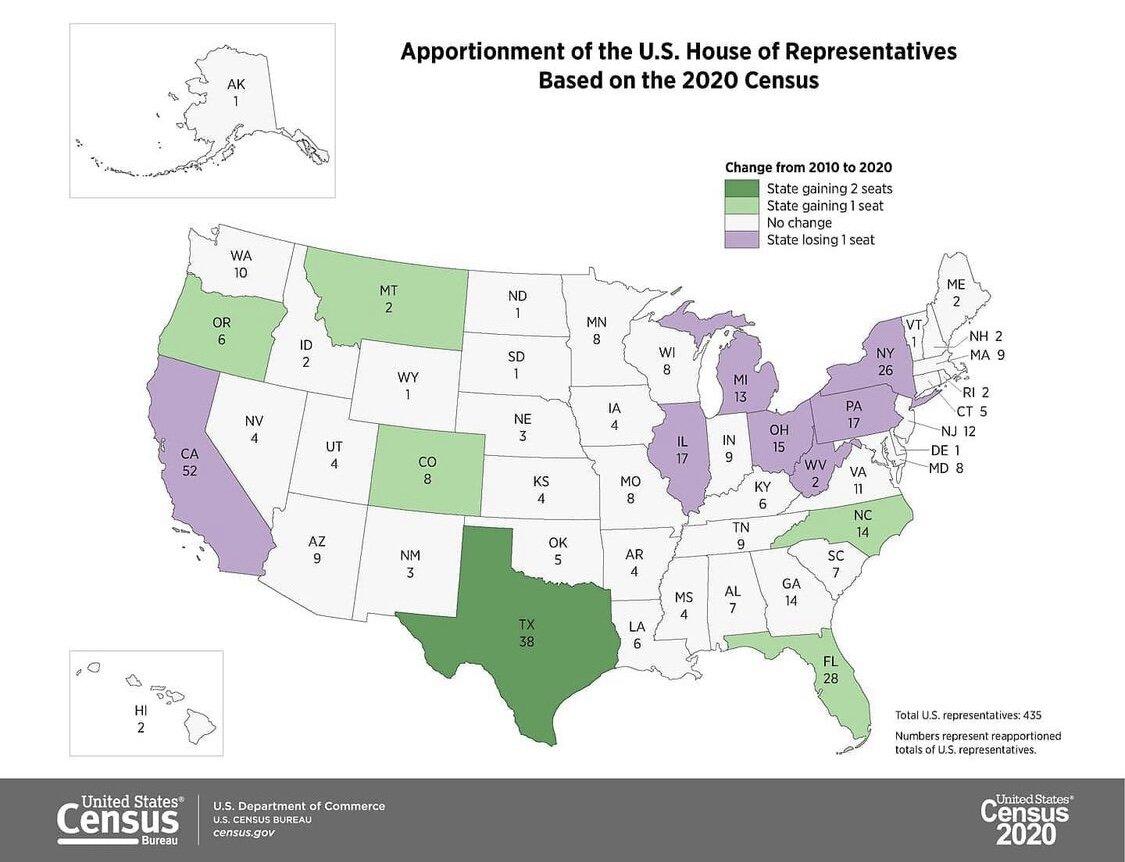In the upcoming year, California is set to lose one seat in the House of Congress. The state is set to lose a seat because the population has failed to grow to a certain point in the past 10 years, making California lose its first seat in its 170 years of existence. This change was recently announced by the U.S Census Bureau and it means that in 2022, California will contest 52 House of Representatives seats, and will lose an electoral vote in the 2024 and oncoming elections.
In the past 10 years, the U.S. population has increased overall by just over 7% at 334 million people, according to numbers recently put out by the Bureau. That’s the second smallest population growth California’s had in 24 decades, with the smallest being just under at 6%. In the past decade, more people have moved to other states from California, rather than moving to California.
According to PleasantonWeekly, officials are worried that, “The loss of a congressional seat is also likely to fuel a narrative peddled by conservatives that Californians are fleeing an expensive Democratic-governed state in search of cheaper, less regulated climes.”
While California will lose a seat due to its population size, some states, such as Texas and Florida, will gain seats due to its increase in population. Notably, Texas is set to gain two seats in the upcoming 2024 elections due to its flood of population in the past couple years. In the past decade, around 1.5 million more people have left California rather than moving to it.
According to the SacBee, “Colorado, Florida, Montana, North Carolina and Oregon will each gain a seat.” While states like, “California, Illinois, Michigan, New York, Ohio, Pennsylvania and West Virginia will each lose a seat.”
California became a state on September 9, 1850 and started off with two house members, California then immediately gained popularity and rose in population. By the year 2000, the population had risen to more than 34 million residents.
Judy Sakaki, SSU President divulged that via relations the school has with Congress, that the lost seat may be coming from Southern California as opposed to someplace closer to campus. She said, “CSU staff that interact with our [U.S.] Congress suggests the Los Angeles area will most likely lose a congressional seat… We are hoping this is not an indicator of lower population levels in California to continue, as losing more seats means losing voices in Washington DC.”
Sakaki also emphasized the importance of an accurate Census and how this affects the state at large. She said,“ We need as large an engagement in future Census gathering as possible. We cannot lose ground on our social or economic initiatives as a result of this change as a state, and we do not expect this to upset the balance too much in the short term. That said, losing a district means the current Congress people may see enough change in their current districts to retire or not run again because of their constituency changing.”
She did hold out hope that with the Congressional number change new leaders may emerge, “including SSU alumni.”
California losing a seat is said to be partly due to its recent spike in housing costs and property taxes. California residents have been looking elsewhere with lower housing costs to live in the United States due to this.
The good news is that although the loss of a house seat may be a psychological blow, Paul Mitchell of California-based Political Data Inc., in an interview with Mercury News, said California won’t give up much political power on a national level.
He also noted that if the 2020 Census efforts had been more comprehensive, other states might have gained more seats. Some officials in Texas predicted picking up several more seats.
“Those states are really upset,” said Mitchell.
While restructuring takes places and states work on redistricting to work around their new house representative totals, only time will tell as to how the Census results will truly affect the look of the 2022 House of Representatives elections.



































